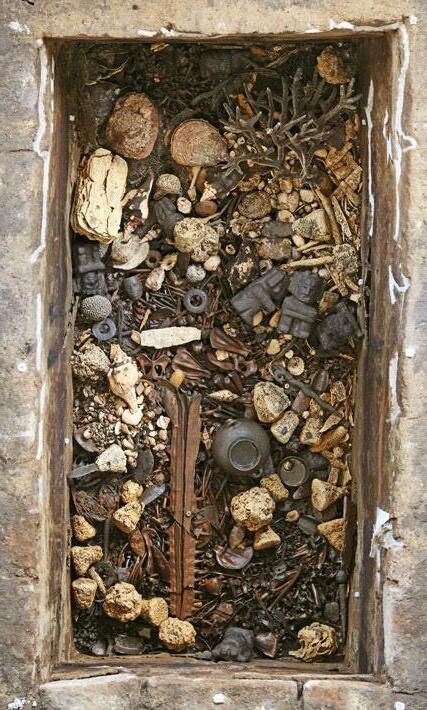
2 minute read
UNEARTHING EVIDENCE
from My first document
by systemdisco
The Professor says that being able to find good sources is a really important skill in history, but also in most academic subjects. He thinks you will find it useful for any activity where you’re trying to find information or learn something new. There is so much information around (especially on the internet) that it can be tricky sometimes to work out what is the best to use for research.
For the Rank A missions in this area, the Professor wants you to demonstrate your skill in finding ‘average’ sources (i.e., ones that aren’t that great), and then show him that you can find quality sources. A source is more likely to be high quality if it:
Advertisement
• is written by a respected or expert author.
• is unbiased.
• comes from a respected organization.
• has been checked by other experts.
• has its own bibliography.
• is recent (or if it’s a primary source, be from as close to the event be studied as possible)
• is helpful to use as an amateur historian.
• is easy to access.
Here is an example the Professor has completed. It shows the kinds of things you should talk about when comparing average sources with quality sources.
Complete these missions in pencil – they might be wrong!
Topic Aztec weaponry
Average source
URL: http://azteccivilisations-justice.weebly.com/aztec-weapons.html
Why it is only
‘average’?
1. Author only lists first names, and does not say what their level of expertise is (I think they are actually school students)
2. Spelling and grammar mistakes in the text
3. There is no bibliography. They say they got help from “Aztec History.com” but don’t say which pages, or where that information came from.
Quality source
URL: https://www.historyonthenet.com/aztec-warriors-weapons-and-armor/
Why it is ‘quality’?
1. Author is an expert – she is a historian and former history teacher (I found this by clicking on the “about us” section)
2. Is written in language that is easy for an amateur historian (like a school student) to understand
3. Has links to lots of other relevant features of Aztec life
Unearthing evidence: Mission Rank A – 400XP
The professor wants you to complete this source evaluation table like the example he did… Topic Tenochtitlan

Unearthing evidence: Mission Rank A – 400XP
The professor wants you to complete this source evaluation table like the example he did, using two websites…
Topic Hernan Cortes Average source
Unearthing evidence: Mission Rank B – 800XP
Now that you know how to tell a quality source from just an average source, the Professor wants you to go a step further. He wants you to start being able to find ‘authoritative’ sources. By authoritative, the Professor means “the best, or one of the best, sources of information on this topic on the whole internet”.
He says that the best research sources online for history topics will come from these types of websites:
• Museums
• Government websites
• Newspapers (especially about recent history and new findings)
• University websites
• Academic websites and journal articles
• Wikipedia – by checking the references section at the end of any entry for good sources (not Wikipedia itself)
Ask yourself this question: would a historian use this website for research?
The difficulty with some of these authoritative sources is that the language might be too complicated for school students, but for now, the Professor is just asking you to find the sources An authoritative source will, most importantly, be from a highly respected source and written from an author who is an acknowledged expert. Try looking at google scholar or a primary source database.
The professor wants you to complete this source evaluation table… Complete it in pencil – it might be wrong!
Topic New Spain

Authoritative source
URL:
Why it is authoritative?
Unearthing
evidence: Mission Rank B –
800xp
Find an authoritative source about the impact of the Spanish conquest on the Aztecs. Complete it in pencil – it might be wrong!
Topic Impacts of conquest and colonisation
Authoritative source
URL:
Why it is authoritative?




